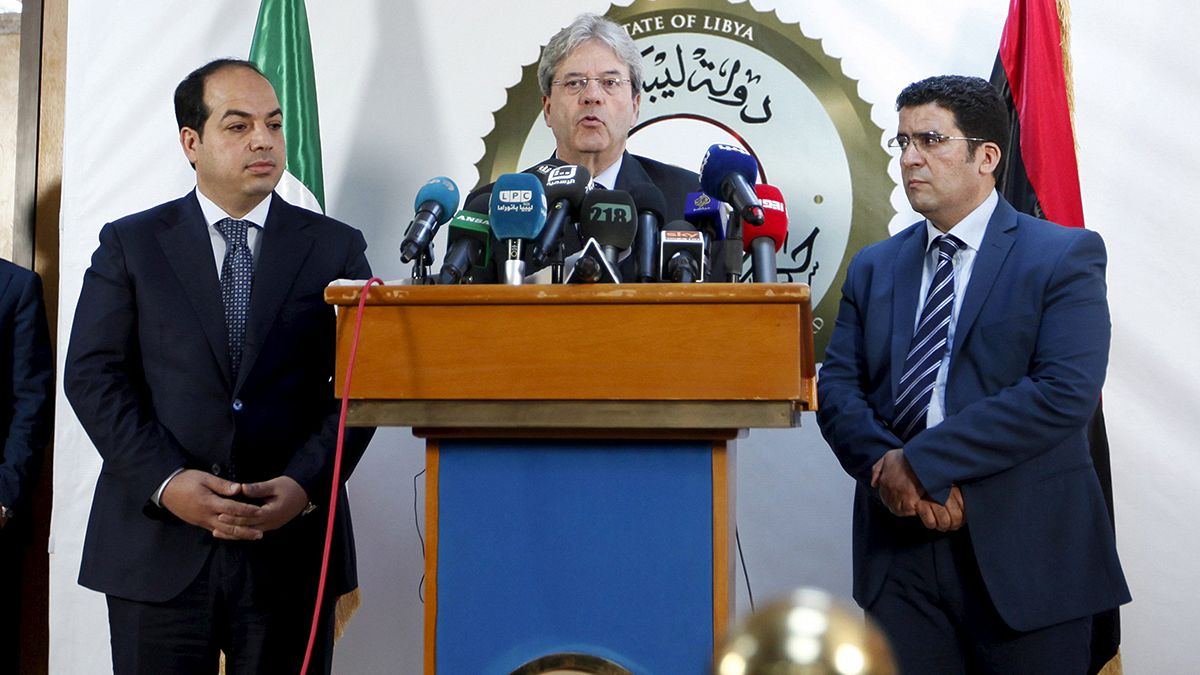Paolo Gentiloni suggested the 2011 UN arms embargo could be lifted
The news
Italy’s foreign minister has made a flying visit to
Tripoli to meet Libya’s UN-backed unity government.
The visit by Paolo Gentiloni was the first by a senior Western official since the arrival in Tripoli nearly two weeks ago of the unity government’s Presidential Council.
He suggested the 2011 UN arms embargo could be lifted to help the Libyan authorities fight ISIL.
“Is it thinkable that in the future, through our cooperation, some sectors of this embargo could be lifted, so to give possibilities to Libyan authorities to be stronger also in fighting Da’esh (ISIL) and terrorism?”
I am delighted to be in #Tripoli for Italy's emergency aid and to support al-Sarraj's Government of National Accord pic.twitter.com/WWwyJS4vvA
— Paolo Gentiloni (@PaoloGentiloni) April 12, 2016
Italian Foreign Minister Paolo Gentiloni met with PM Faiz Serraj in Abusetta #Tripoli to show support to GNA #Libyapic.twitter.com/quBVWrDocZ
— Nadia Ramadan (@NadiaR_LY) April 12, 2016
Today FM
PaoloGentiloni</a> in Tripoli w/ <a href="https://twitter.com/hashtag/Libya?src=hash">#Libya</a> PM-designate al-Sarraj to bring support & humanitarian aid from Italy <a href="https://t.co/keDgkvcEUS">pic.twitter.com/keDgkvcEUS</a></p>— Italy UN New York (ItalyUN_NY) April 12, 2016
Italy made a first delivery of food aid and medical kits to the Tripolic area on Tuesday. Gentiloni said here are plans to deliver assistance to hospitals in the war-torn eastern city of Benghazi.
Bilateral meetings on illegal migration, transport links and security assistance are also planned.
The context
The new administration is trying to consolidate its presence.
Italy, Libya’s former colonial ruler, has played a prominent role in rallying support.
Western powers hope it can unite Libya’s warring factions, end its political chaos and request foreign help to tackle ISIL and migrant trafficking across the Mediterranean.
The unity government is meant to replace the two sets of governments and parliaments in Tripoli and the east. Both were backed by loose alliances of the armed factions that established themselves after the uprising that toppled the former leader Muammar Gaddafi in 2011.
Opposition
The Council has faced resistance in both Tripoli and eastern Libya., the bases for Libya’s two rival governments.
Its opponents in the capital closed down the airspace the prevent its members flying in.
What they are saying
“We are all studying and discussing the possibility of reopening our diplomatic presence here in Tripoli.” – Paolo Gentiloni
